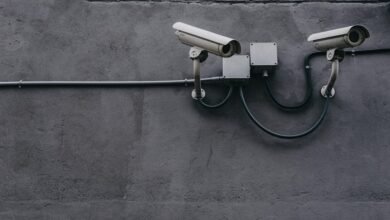1743816396 Missed Call Recovery Behavior

The missed call from 1743816396 presents an intriguing case for analyzing recovery behavior. Familiarity with the caller’s number can significantly influence the recipient’s response. Recognized numbers often prompt immediate action, while unknown contacts may lead to neglect. This decision-making process is shaped by urgency and psychological factors. Understanding these dynamics could reveal deeper insights into modern communication habits, prompting further examination of the underlying motivations. What factors ultimately determine the recipient’s choice?
Understanding the Caller ID: The Impact of Familiarity
How does the familiarity of a caller’s identity influence a recipient’s response to missed calls?
Caller recognition plays a crucial role, as individuals exhibit familiarity bias, prioritizing responses to known contacts. This cognitive shortcut simplifies decision-making, leading recipients to more readily engage with familiar callers while potentially dismissing unknown numbers.
Such dynamics can significantly affect overall communication patterns and interpersonal relationships in a digital age.
The Role of Urgency in Call Return Decisions
While the familiarity of the caller’s identity significantly influences response behavior, the perceived urgency of a missed call also plays a critical role in determining whether individuals choose to return the call.
Urgency perception drives call prioritization, influencing decisions based on contextual factors such as time sensitivity and potential consequences, ultimately shaping the individual’s assessment of the necessity to reconnect with the caller.
Psychological Factors Influencing Missed Call Responses
The psychological landscape surrounding missed call responses is shaped by various cognitive and emotional factors that extend beyond urgency.
Cognitive biases, such as availability heuristics, may lead individuals to prioritize certain calls based on perceived importance.
Emotional responses, including anxiety or annoyance, further influence decisions to return calls, reflecting a complex interplay between individual perception and situational context in missed call recovery behavior.
Social Dynamics and Communication Preferences
Given the increasing complexity of modern communication networks, social dynamics significantly influence individuals’ preferences for returning missed calls.
Social norms dictate acceptable response times, while varied communication styles shape individual approaches to missed calls. Those adhering to traditional norms often prioritize promptness, whereas others may adopt a more relaxed attitude, reflecting broader societal shifts towards personal autonomy and diverse interaction preferences in digital communication.
Conclusion
In the grand theater of missed calls, the number 1743816396 stands as a silent harbinger of social etiquette. Those fortunate enough to recognize it may rush to return the call, driven by an innate urgency akin to rescuing a drowning friend. Meanwhile, the unrecognized digits languish in voicemail purgatory, victims of an irrational prioritization of familiarity over potential enlightenment. Thus, the modern communication landscape reveals itself as a comedic farce, where the familiar reigns supreme, and mystery is summarily ignored.





